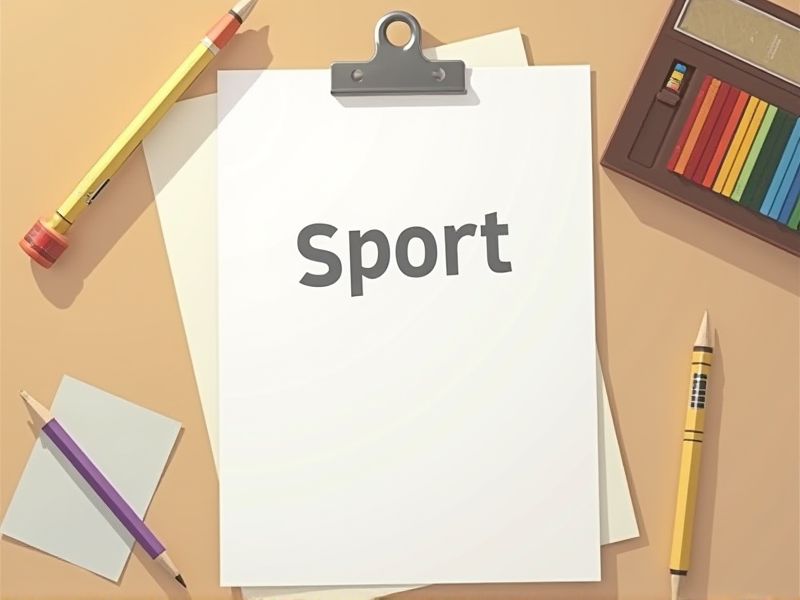
Sport coaching requires specific knowledge and skills to effectively guide athletes and teams. Certifications provide a structured framework, ensuring coaches meet industry standards and possess essential competencies. These credentials offer assurance to athletes and organizations, elevating trust and professionalism in the coaching world. Consider these important certifications that can enhance your career as a sport coach.
CPR and First Aid Certification
A CPR and First Aid Certification equips a sports coach with essential life-saving skills in the event of an on-field medical emergency, reducing the risk of critical outcomes. In high-impact sports, injuries are common; a certified coach can immediately address injuries, preventing complications. Participation in CPR and First Aid training informs coaches about injury prevention strategies, promoting a safer sporting environment. Certified coaches often build trust with athletes and parents by demonstrating a commitment to athlete safety.
National Coaching Certification Program (NCCP) Certification
The NCCP certification ensures that sports coaches possess standardized knowledge and skills, enhancing the quality of coaching across the nation. This certification fosters safer training environments by educating coaches on risk management and athlete safety. Coaches with NCCP certification are better equipped to design effective training programs based on scientific principles, improving athlete performance. Many sporting organizations require NCCP certification for employment or advancement, influencing career opportunities in the sports coaching industry.
SafeSport Certification
SafeSport Certification is needed for sport coaches because it establishes a standardized framework for preventing abuse and misconduct, ensuring a safe environment for athletes. This certification mandates coaches to stay informed about ethical standards and best practices, reducing the risk of harmful incidents. Without such certification, organizations face potential legal liabilities and reputational damage if misconduct occurs. Coaches equipped with SafeSport education tend to create a more positive, inclusive, and effective sporting experience for all participants.
Youth Sport Coaching Certification
Youth sport coaching certification ensures coaches possess essential knowledge about child development and safety, reducing the likelihood of preventable injuries. Certified coaches are more equipped to create positive and inclusive environments that nurture young athletes' personal and athletic growth. Certification can lead to a more organized coaching structure, promoting consistency and effectiveness in training methodologies. The presence of certified coaches often leads to higher parental trust and program participation rates, benefiting both the coaches and the sporting organizations.
Sports Psychology Certification
Sports psychology certification equips coaches with the skills to enhance athletes' mental resilience, leading to improved performance. Understanding psychological principles allows coaches to develop effective motivation strategies tailored to individual athletes. This certification aids in managing stress and pressure, which often affects athletes' concentration and performance in high-stakes environments. Coaches with this certification can foster a positive team culture, improving communication and relationships, which is vital for team success.
Certified Strength and Conditioning Specialist (CSCS)
Having a Certified Strength and Conditioning Specialist (CSCS) aids a sports coach in implementing evidence-based training programs, enhancing athletes' performance outcomes. The CSCS certification ensures the coach possesses in-depth knowledge of exercise science, reducing the risk of sports-related injuries. Expertise gained through CSCS allows coaches to tailor training regimens specific to an athlete's sport and physical requirements, optimizing competitive advantage. Sports coaches with CSCS credentials can better communicate and collaborate with medical and athletic training staff, creating a more cohesive and effective training environment.
Athletic Training Certification
Athletic training certification ensures a sport coach is knowledgeable about injury prevention, which reduces the risk of athlete injuries. This certification enhances a coach's understanding of proper rehabilitation techniques, facilitating quicker and safer athlete recovery. With certified training, a coach is equipped to recognize and respond to sports injuries, minimizing long-term damage for athletes. Certified coaches often contribute to a higher team performance level due to effective injury management and prevention strategies.
Sport Nutrition Certification
Sport nutrition certification equips coaches with specialized knowledge about dietary needs, directly enhancing athletes' performance and recovery. Having such certification enables coaches to create personalized nutrition plans that reduce injury risk and optimize training outcomes. It builds credibility and trust among athletes and stakeholders, which enhances the overall effectiveness of the coaching program. Incorporating evidence-based nutritional strategies can lead to measurable improvements in athlete health and competitive results.
Sports Performance Coaching Certification
Sports performance coaching certification equips coaches with evidence-based methodologies, enhancing player development and team performance. It assures athletes and their guardians of a coach's competency and commitment to professional standards. Certification encourages continuous learning, adapting to the ever-evolving sports science landscape. It also provides a competitive edge in the job market, distinguishing certified coaches from non-certified counterparts.
Mental Health First Aid Certification
Mental Health First Aid Certification equips sports coaches with the skills to recognize signs of mental health issues in athletes, promoting early intervention. This certification fosters a supportive environment, crucial for athletes' mental well-being, and enhances team performance. Coaches gain the ability to provide appropriate support and guidance, reducing stigma around mental health within sports teams. Armed with this knowledge, coaches can connect athletes to professional resources efficiently, potentially preventing more severe mental health crises.
Summary
You, as a sports coach with certifications, can anticipate enhanced credibility and trust from athletes and parents. Certification equips you with advanced techniques and knowledge, optimizing athlete performance. Your professional network expands, opening doors to more career opportunities. Athletes under your guidance are likely to see improved results and greater satisfaction.
